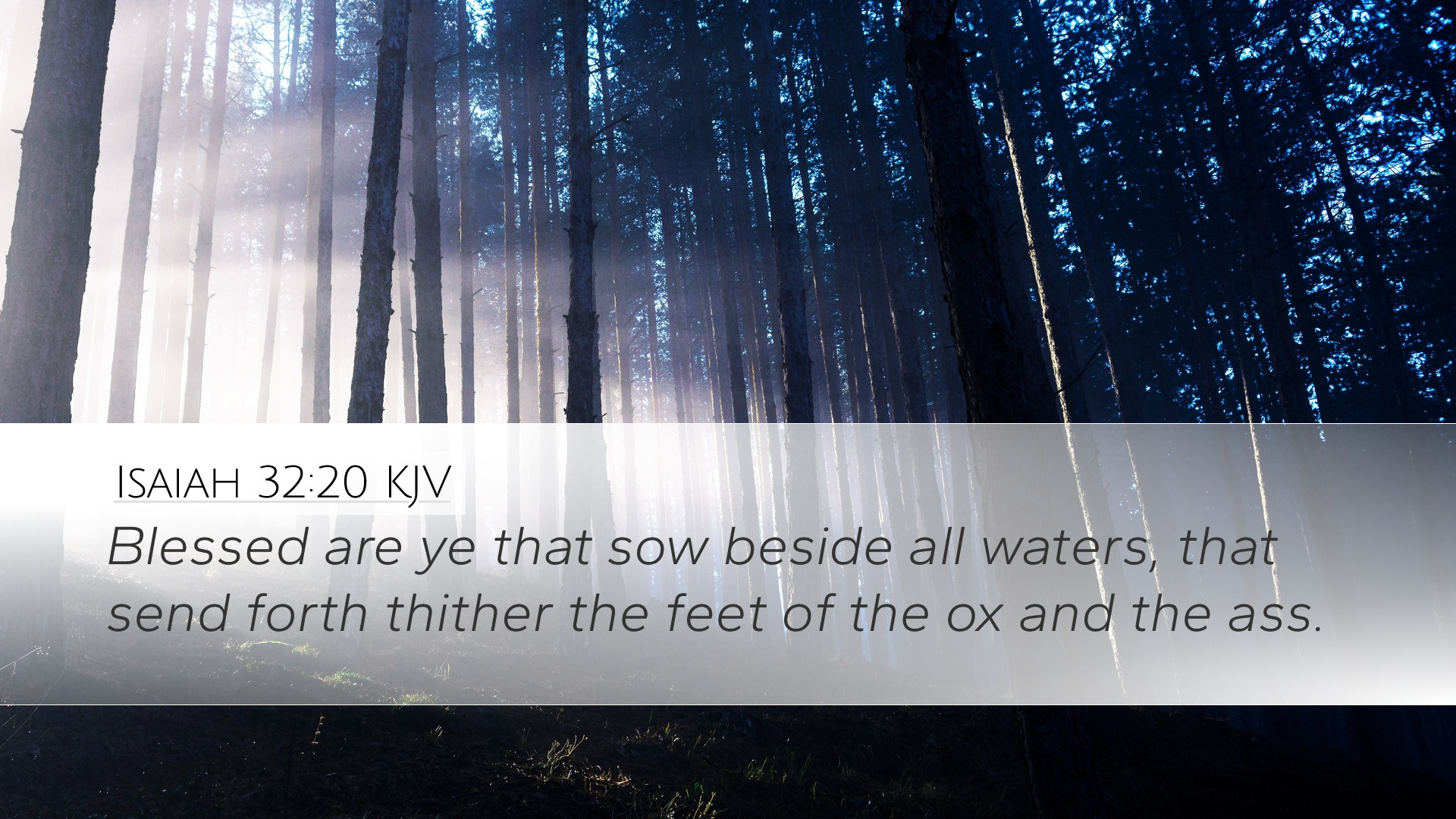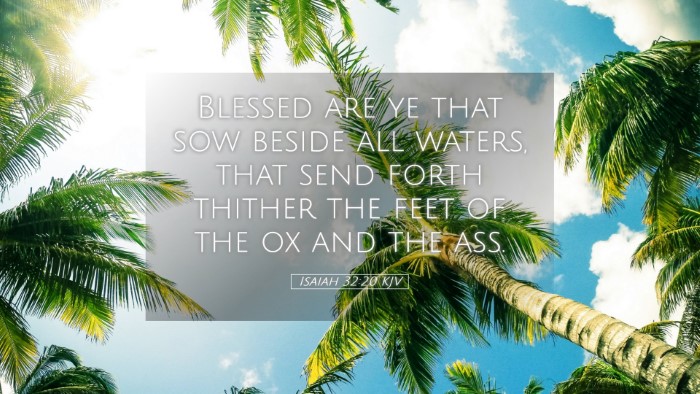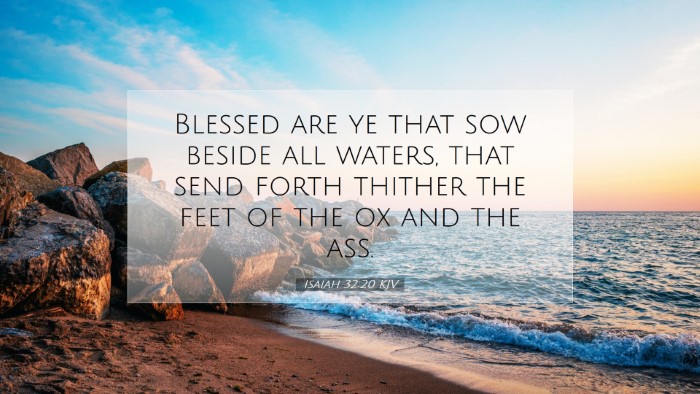Commentary on Isaiah 32:20
Verse Overview: Isaiah 32:20 states, "Blessed are you who sow beside all waters, who send out freely the feet of the ox and the donkey." This verse emphasizes the blessings associated with sowing and the fruitful rewards of diligent labor, especially in a time of desolation.
Contextual Background
The book of Isaiah frequently oscillates between messages of judgment and hope, reflecting the socio-political challenges faced by Judah. Throughout Isaiah, the prophet advocates for righteousness, warns against injustice, and, crucially, points to a future restoration. The passage at hand sits within a section that contrasts the desolation resulting from sin with the abundant blessings that accompany faithfulness and godliness.
Exegesis and Theological Insights
The verse uniquely captures the essence of divine blessing in relation to agricultural metaphors. The act of sowing beside all waters is indicative of a diligent approach to planting, suggesting that the faithful are engaged in work that appears risky but is ultimately fruitful.
1. "Blessed are you who sow beside all waters"
Matthew Henry: Henry interprets this phrase as an encouragement to the righteous and those who trust in God’s providence. He notes that the metaphor of sowing hints at generosity and abundant planting, signifying a hope that God rewards those who take steps of faith, especially during challenging times.
Albert Barnes: Barnes expands on the imagery of sowing beside waters, connecting it to a broader principle of spiritual sowing. He emphasizes that waters symbolize plentiful resources and that sowers must act in faith, believing in God’s provision and the eventual harvest that will follow their labor.
Adam Clarke: Clarke elaborates on the act of sowing, suggesting that it requires effort and consistent faithfulness. He highlights that those who work diligently in the Lord’s fields can expect a bounty, especially as they engage in spreading the Gospel and doing good works.
2. "who send out freely the feet of the ox and the donkey"
This latter clause demonstrates the diligent and unencumbered efforts of those who work the fields. The idea of sending the feet of the ox and donkey freely suggests a liberation of resources for the purpose of cultivation.
Matthew Henry: According to Henry, the ox and donkey represent strength and perseverance. Their ‘freedom’ to work underscores that God blesses those who allow themselves to be used wholly in service to His kingdom, void of barriers or hesitations.
Albert Barnes: Barnes interprets the mention of these animals as a representation of labor and responsibility toward God-given tasks. Their work is not self-serving but is directed towards reaping the benefits of the sowing, an allegory of the believer’s life producing fruit for the glory of God.
Adam Clarke: Clarke reflects on the diligent utilization of resources, pointing out that the mention of these animals serves as a reminder of the need for believers to give freely of their time and talents. By doing so, they foster a rich spiritual harvest that reflects God’s grace and abundance.
Application for Believers
This verse bears significant implications for contemporary believers and leaders within the church. It resonates especially with those engaged in ministry, teaching, and missions, as it highlights the importance of sowing spiritually and materially wherever opportunities arise.
1. Sowing Generously
The call to sow beside all waters encourages active participation in kingdom work regardless of circumstances. Pastors and church leaders are reminded that faithfulness in small things often leads to larger blessings.
2. Emphasis on Faith and Diligence
Students and scholars can glean insights into the theology of work from this passage, recognizing that every act of service is worthy when done in faith. The concept emphasizes that God honors those who labor for Him, removing all barriers that hinder fruitfulness.
3. Expectation of Harvest
For theologians, an examination of the eschatological promise of harvest can lead to deeper discussions on God’s ultimate restoration of creation. The verse reflects God's principle of sowing and reaping found throughout Scripture—charging believers to anticipate rewards for their labor in God's kingdom.
Conclusion
Isaiah 32:20 serves as an invocation for the church in all generations to commit to expansive and intentional sowing in faith. By embracing the blessings of God in our endeavors, we align ourselves with His divine purposes and look forward to an abundant harvest brought forth by our steadfast toil and faithfulness.


